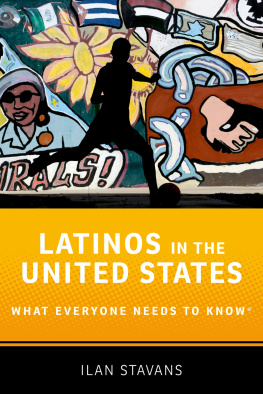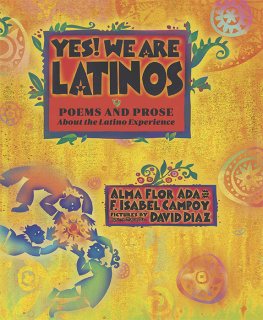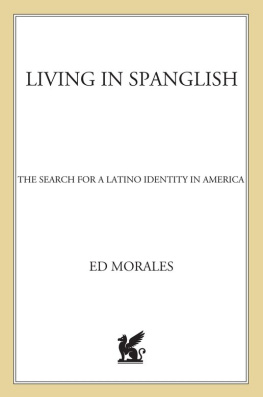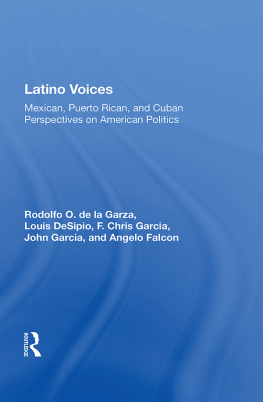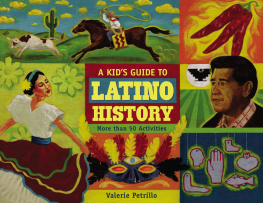MI VOZ, MI VIDA
Latino College Students
Tell Their Life Stories
EDITED BY
Andrew Garrod, Robert Kilkenny,
and Christina Gmez
Cornell University Press
Ithaca and London
In recognition of their bravery and insight, this book is dedicated to the fifteen
student autobiographers whose essays are presented here.
Contents
Eric Martinez
Joseph Rodriguez
Sarah Fox
Jos Garca
Marissa Saldivar
Abiel Acosta
Miguel Ramrez
MENTORING: THE SOMEONE IN MY LIFE
Angelita Urena
Robert Cotto
Viana Turcios
Alejo Alvarez
Antonio Rodrguez
Norma Andrade
Alessandro Melndez
David Ralos
Preface
Memoir is how we try to make sense of who we are, who we once were, and what values and heritage shaped us, writes William Zinsser, the editor of Inventing the Truth: The Art and Craft of Memoir (New York: Mariner Books, 1998). If a writer seriously embarks on that quest, readers will be nourished by the journey, bringing along many associations with quests of their own (1998, 6). The stories included in Mi Voz, Mi Vida: Latino College Students Tell Their Life Stories are essentially memoirs in which the student autobiographersall late adolescents between the ages of eighteen and twenty-two at Dartmouth Collegereflect on formative relationships and influences, life-changing events, and factors that helped shape their values, educational outcomes, and sense of personal identity. Each author brings to this book his or her own unique experience of growing up Latino or Latina in this country. It is our hope that readers of this anthology are engaged by the particularity and detail of these stories while at the same time connecting with the individual human experience.
Almost all the student essays in this bookwith the exception of Living between the Lines and On Being Canela, which are olderwere written in the last three or four years. Though Dartmouth College was the site for the collection of the narratives, this book does not focus on Dartmouth per se or on its educational impact on our contributors, but rather on their evolving lives and Latino identities. All fifteen autobiographers worked one-on-one with Andrew Garrod in weekly one-hour meetings over the terms ten-week period. Typically, the student would submit seven or eight pages to Garrod prior to each meeting; these pages then became the focus of attention when they met. Teacher and writer also discussed how to proceed with the next portion of the narrative. Garrod made no assumption that the story was already formulated in the students head and conveyed to the student that each story had to be found, piece by piece. Because the emphasis was on processhelping the writers with that most complex of all writerly tasks, finding their voice, a task further complicated for those whose first language was Spanishno editorial interventions were made during the generative stage. Although the parameters were necessarily established by the editors, we encouraged the writers to develop their own themes and make analytical sense of their experiences in ways that gave them back a significant meaning for their own lives. Not infrequently, a writer was halfway through the process before he or she came to understand what the essays central concerns and themes were, which led to the papers being reordered to reflect the writers new insight. Memoir writers must manufacture a text, imposing narrative order on a jumble of half-remembered events, writes William Zinsser. With that feat of manipulation, they arrive at a truth that is theirs alone, not quite like that of anybody else who is present at the same events (1998, 6).
In helping our writers articulate their stories, we offered just a few guiding questions: What gives purpose to your life? What relationships have been of major significance to you? When and how did you become aware of the concept of ethnicity? What have been some of the major struggles in your life? How do you account for your academic success? What are the racial and ethnic backgrounds of some of your closest friends? Would you say that you were politically active in the college community? What role does your Latinoness play in how you identify yourself? Is Latino a useful categorization in your mind? We made no assumption that their ethnicity was a vital element in self-definition for all. Some only became aware that they were Latino or were viewed by others as such when they came to college.
The completed manuscripts were most often in the fifty- to seventy-page range. After careful consultation and discussion, over months or occasionally even years, cutting and editing reduced and sharpened the text to a manageable length of eighteen to twenty-four double-spaced pages. Editors changes to the text were minimal. The variations in tone, degree of self-analysis, and style of expression reflect our commitment to respect each writers story and life.
After the draft had been reduced to approximately twenty-five pages, the essay was sent to Robert Kilkenny, who had not worked with this student and who could offer a more objective reaction to the reading. This was done to bring the essay to another level of psychological cohesion in the hope that areas that seemed to be avoided or mysteriously unaddressed were brought to the attention of the writers. Suggestions were made as to why the story would be better understood if some of these lacunae were engaged or explored more thoroughly. This was a conscious process of pushing the writer to the edge of his or her ability to reflect on his or her own life history. It was not unusual to have a writer balk or say that further exploration was too painful, or that they were genuinely unable to reflect further about experiences still subjectively raw and unresolved.
Almost all of the students in this book were enrolled in the sociology course, Complexity of Latino Identity, taught by Christina Gmez and in Andrew Garrods education classes. These courses offered students a resource to explore theoretical, experiential, and historical concerns, often functioning as a sounding board for the authors. Expanding the students understanding of Latino history, politics, and public policy was a central goal. The Garrod courses embrace a developmental perspective and examine issues of race, ethnicity, class, and gender.
Although fifteen essaysten by men and five by womenappear in this book, they represent only a portion of the essays, fewer than half, that were developed and completed. Some students withdrew their essays from consideration for this anthology, because the writing of the essay and the self-reflection it had necessitated was the primary reason they embarked on the venture in the first place; others hesitated to make suggested changes or to engage in further self-exploration and editing. In such cases, we made an editorial decision as to whether the case could stand as a whole without further elaboration or whether its coherence was insufficient to merit publication. At times, the students self-understanding was not sufficiently developed to merit the essays inclusion in the book. Nevertheless, the editors are deeply grateful for all the essays so diligently worked on over the years, whether included in the book or not.
To encourage the frankest possible exploration of their lives and relationships, we offered the writers the option of remaining anonymous. For those who have chosen that optionoften in deference to the dignity and feelings of other people in the narrativedetails of identity and location have been altered.


